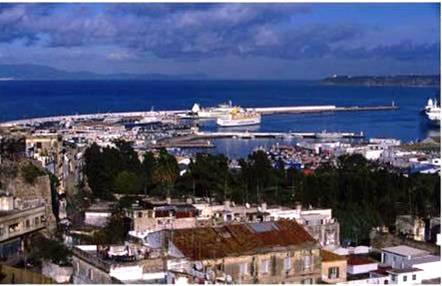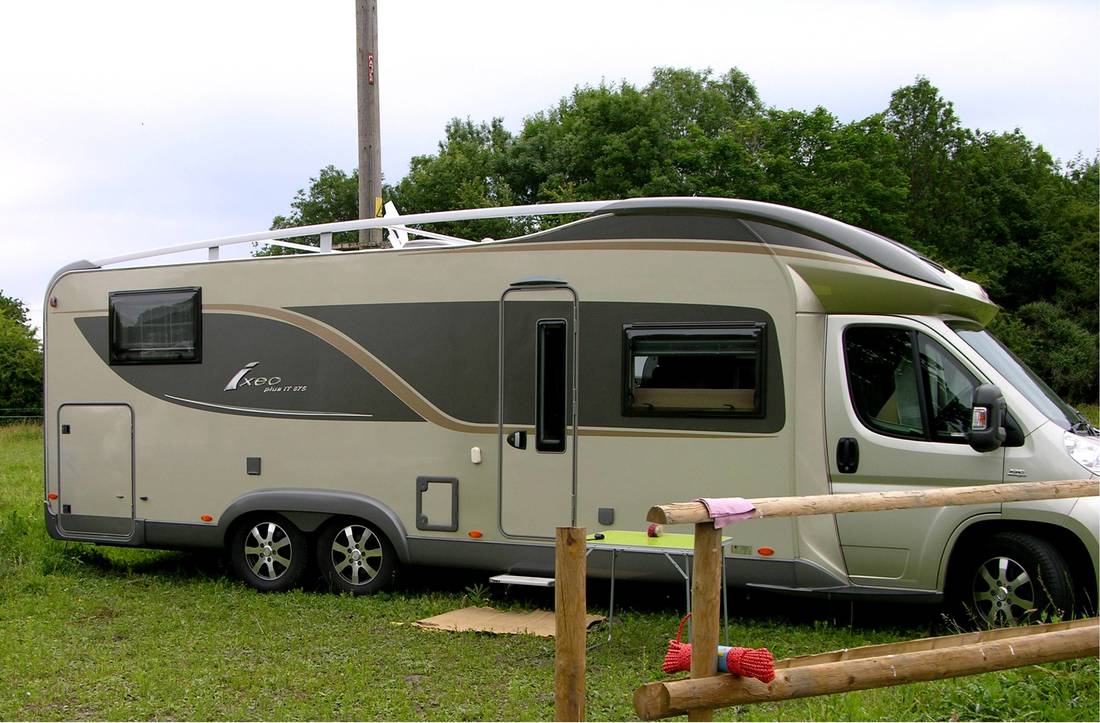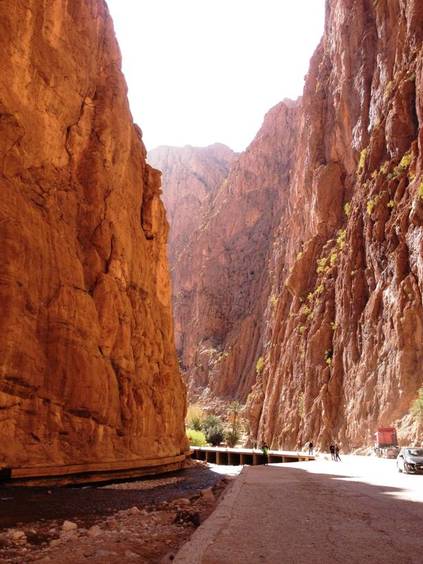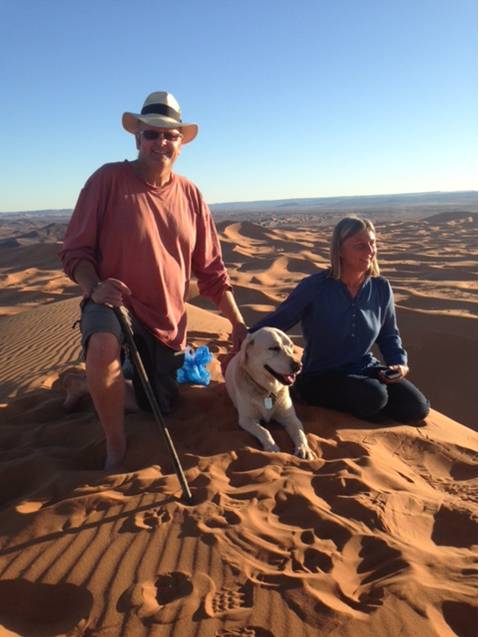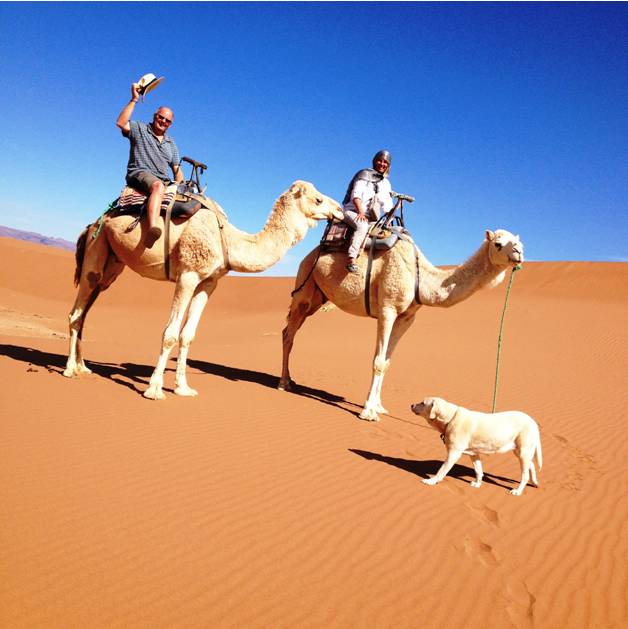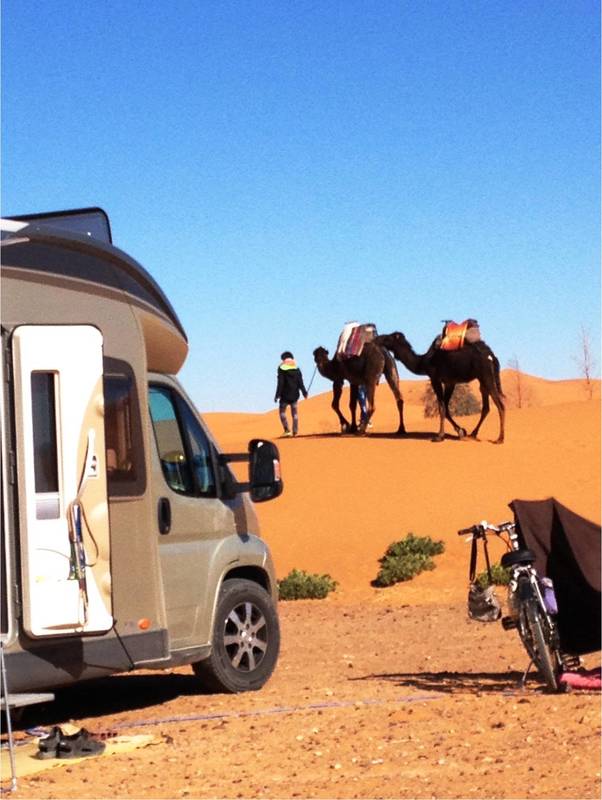Morocco 2015-2016
When Alistair and I retired at the end of March 2014 we spent eight months touring in France Spain and Portugal, with an intention of going to Morocco in North Africa the following year. The reason for this was that there are so many rumours, opinions, truths, half truths and complete rubbish that surrounded the trip. There were those that had loved Morocco, to those that would never dream of taking their vehicle to such a place. These people had not been to Morocco, and had scared themselves into not going through hearsay and speculation. We wanted to assess the information available, speak to those who had taken a motorhome to Morocco, and plan our own trip.
These are some pics from one our pre Moroccan trips in 2015
The Alhambra Palace and Salorena In Spain
These are some pics from one our pre Moroccan trips in 2015
The Alhambra Palace and Salorena In Spain
Of the four people we met on their way home from Morocco, three were positive, would go again and gave helpful information, the fourth said he had had a threat from a tout whose service he declined, and it had put him off going again. This unfortunate incident appeared isolated, and could happen any where.
Information and research for the trip came from the following, and contributed a good data base for planning and day to day travel. Motorhome Morocco by Julie and Jason Buckley 2011 proved very useful for practicalities, ticket, port and crossing procedure. Camping Morocco Vicarious books 2009, gave a current list of campsites, though eight years since publication it has probably been updated by users. Supplementary to this the online Campercontact App run by the Dutch motorhome community is excellent, once downloaded it can be used off line (though seemed to work slightly better online). The site is live and continually updated by those touring, and it is easy to send your own updates directly from the App. Lonely Planet Morocco has a wealth of places to see, need to know information, dress code and everyday life in Morocco.
The Home Office website lists Morocco as a high risk area for terrorism, the Uk France and Spain are listed as under serious threat, so did not affect our decision to go. In fact the Paris attack of Nov 3rd 2015 took place just before our trip, so Morocco turned out safer than France.
We chose the ordinary car version of Morocco map on TomTom, and teamed it with Galileo Pro off line maps. Galileo Pro app can be bought for a one off cost of around three pounds, any road map in the world can be downloaded on line, and can then be used off line. It uses GPS , so can always show current location. The route can be recorded, and by scrolling in detail that includes one way roads in town is very good. As navigator I always have Galileo running on the Ipad, and can easily override Tomtom, as a good over view and alternate rout decisions are quick and easy to make. For example the navigation might say turn right into an unsuitable looking road for a motorhome. I can see there is a roundabout and more appropriate route ahead, and with confidence re-direct, and there are many other great functions. The Ipad does need to be plugged into 12V on the road to conserve the battery. I have the app on my Iphone for cycling and walking, mark the parking spot, and I can see where I am in relation to the vehicle.
Information and research for the trip came from the following, and contributed a good data base for planning and day to day travel. Motorhome Morocco by Julie and Jason Buckley 2011 proved very useful for practicalities, ticket, port and crossing procedure. Camping Morocco Vicarious books 2009, gave a current list of campsites, though eight years since publication it has probably been updated by users. Supplementary to this the online Campercontact App run by the Dutch motorhome community is excellent, once downloaded it can be used off line (though seemed to work slightly better online). The site is live and continually updated by those touring, and it is easy to send your own updates directly from the App. Lonely Planet Morocco has a wealth of places to see, need to know information, dress code and everyday life in Morocco.
The Home Office website lists Morocco as a high risk area for terrorism, the Uk France and Spain are listed as under serious threat, so did not affect our decision to go. In fact the Paris attack of Nov 3rd 2015 took place just before our trip, so Morocco turned out safer than France.
We chose the ordinary car version of Morocco map on TomTom, and teamed it with Galileo Pro off line maps. Galileo Pro app can be bought for a one off cost of around three pounds, any road map in the world can be downloaded on line, and can then be used off line. It uses GPS , so can always show current location. The route can be recorded, and by scrolling in detail that includes one way roads in town is very good. As navigator I always have Galileo running on the Ipad, and can easily override Tomtom, as a good over view and alternate rout decisions are quick and easy to make. For example the navigation might say turn right into an unsuitable looking road for a motorhome. I can see there is a roundabout and more appropriate route ahead, and with confidence re-direct, and there are many other great functions. The Ipad does need to be plugged into 12V on the road to conserve the battery. I have the app on my Iphone for cycling and walking, mark the parking spot, and I can see where I am in relation to the vehicle.
Port of Tangier
Vehicle and personal safety came high on the agenda. Our motorhome has an activated tracker, a Thatcham alarm and our insurance company Caravan Guard gave green card cover. Not all companies do this and insurance can be bought at the port in Tangier. There is no road side recovery insurance available, however there is a main Fiat dealership in Agidir, and garages, tyre depots and recovery are widely available. Prior to leaving the UK the vehicle had a full service and habitation check. As a precaution a skid was fitted over the back chassis rail to alleviate ground contact. For security we decided to use campsites and not wild strike where possible which we normally do. Otherwise we kept valuables out of sight, locked the vehicle at all times when unattended or traveling, and took note of our surroundings, normal precautions for any trip.
Our 2012 Burstner IXEO PLUS IT 875 on a 3litre diesel Fiat chassis on home ground at one of our yearly rallies at our Pony Field
We decided to depart from Tarifa. There were two reasons for this, the port is smaller, and for us convenient for our Portugal approach, and put us into Tangiers Port ready to tackle the West coast of Morocco. Our open ended return ticket cost £190 from a ticket agent just outside the port. On request he print three copies of the vehicle registration details from the VC5 to import the vehicle to Morocco, and gave us two white in going immigration forms, and two yellow for the return trip. (The white and yellow forms are available onboard if not obtained beforehand). Tickets can be bought from the port office and are slightly cheaper, tickets are for a motorhome of any size with two people, dogs are free.
Not sure of what would be easily available we stocked up at Mercadona in Tarifa with items such as alcohol, dog food, teabags, hair conditioner, and washing liquid. In fact all except alcohol and dog food were available in Marjane or the other national supermarkets, and there are plenty of local shops for basic supplies. We were glad we took a good supply of toilet and grey tank fluid, as these did not appear to be sold anywhere. In Morocco there is no LPG Autogas, we topped up in Spain, then used electric hook up on site, and bought a gas ring and bottle for cooking. The ring and bottle cost 200D (£13.59), with cheap re-fills widely available
Not sure of what would be easily available we stocked up at Mercadona in Tarifa with items such as alcohol, dog food, teabags, hair conditioner, and washing liquid. In fact all except alcohol and dog food were available in Marjane or the other national supermarkets, and there are plenty of local shops for basic supplies. We were glad we took a good supply of toilet and grey tank fluid, as these did not appear to be sold anywhere. In Morocco there is no LPG Autogas, we topped up in Spain, then used electric hook up on site, and bought a gas ring and bottle for cooking. The ring and bottle cost 200D (£13.59), with cheap re-fills widely available
To make the trip stress free as possible we chose a lunchtime crossing of the three available, with plenty of daylight either end. The new service only aire in Tarifa, is nearby for filling, emptying and laundry, has street parking, and is only a mile from the port. Check in at the port went smoothly, with none of the expected touts, and friendly helpful staff. To load and unload on to the Fastcat thick coir mats are positioned by staff who guided us on and off, and the chassis skid worked well. Two completed white immigration forms, presented with passports on board ,and once checked ands stamped, passports returned with a unique visa number for up to three months stay. At Tangier Port the police, customs and immigration checked the vehicle documents, there is a green form to complete if the triplicate forms printed by the booking agent had not been organised. About forty minutes later with completed paperwork we set off.
Before the exit of the port on the right hand side there is a Bureau de Change and an ATM. It is not possible to get dirhams outside the country, so it is easy to change money here, the vast majority of transactions are in cash. Small notes of 20 -50D and coins are in short supply, so ask for some in the Bureau de Change and many banks advertise they give change, ATMs gives out 100 and 200D notes.(100D=£7.15 February 2016).
Right turn out of the port and two miles later we came to Camping Miramonte. The information said the site was up a steep unmade track, difficult for large motorhomes. Thankfully the road with two hairpin bends to the campsite had been sealed, and posed no problem for the tag axel. We arrived at the first destination and new country happy and relaxed, after the total of a three miles drive for the day, and stayed a couple of days to acclimatise. The campsite was a mile walk from town, where we bought a Moroc Telecom data only SIM (100d) , and 12G a month for 100D (total £13.59), a further 12G can be added by top up card as needed,, coverage is good, and free wifi is widely available in cafes and campsites. The SIM can be topped up to accommodate Facetime Skype and phone calls in addition to data. Alternatively a Meroc Telecard, can be used on a private land line and the card is charged. Dial in the card details and number, and a 50D (£3.40) card gives a total of fifty minutes international call time. There are public telecard phones, few work.
In general the campsites are perfectly adequate, and a bargain, at 50-120D (£3.34-£8.20) a night with electric, and secure parking. Most have free wifi , and all the other facilities required. Taste the water before filling the tank as it can be salty. On arrival the camp guardian will take passport details, and previous and planned destination so foreigners can be traced in an emergency. The police ask for the same information at check points, a stock of Ficshe with the required information is useful (and can be used at camp sites). The form is available on line, and we kept a supply ready to hand over as it saves Polica writing out the details, the green card may also be requested. Foreign vehicles are usually waved through, and if stopped not asked for the constant bribes of the past. King Mohamed VI is keen to promote tourism, and tourists are valued guests who must not feel threatened..
King Mohamed VI is generally liked by his subjects, and has done much to improve Morocco’s prospects. Right from birth he was proclaimed Crown Prince, and groomed for Kingship. At university his Doctorate thesis explored how he would improve the lot of his people and country, which he proceeded to do when he inherited the throne in 1999. Bread became very cheap so no one starved, and all children are required to attend school and improve employment prospects. An allowance is paid to the family if a child is released from mainly agricultural work at home, to go to school. Children who beg from tourists for sweets pens and dirhams, should be respectfully reminded they get these by going to school to promote their chance of work. French is taught as a second language and is commonly used by children and adults secondary to Arabic and Berber. English is not spoken much except in tourist areas, so knowledge of French is useful.
Before the exit of the port on the right hand side there is a Bureau de Change and an ATM. It is not possible to get dirhams outside the country, so it is easy to change money here, the vast majority of transactions are in cash. Small notes of 20 -50D and coins are in short supply, so ask for some in the Bureau de Change and many banks advertise they give change, ATMs gives out 100 and 200D notes.(100D=£7.15 February 2016).
Right turn out of the port and two miles later we came to Camping Miramonte. The information said the site was up a steep unmade track, difficult for large motorhomes. Thankfully the road with two hairpin bends to the campsite had been sealed, and posed no problem for the tag axel. We arrived at the first destination and new country happy and relaxed, after the total of a three miles drive for the day, and stayed a couple of days to acclimatise. The campsite was a mile walk from town, where we bought a Moroc Telecom data only SIM (100d) , and 12G a month for 100D (total £13.59), a further 12G can be added by top up card as needed,, coverage is good, and free wifi is widely available in cafes and campsites. The SIM can be topped up to accommodate Facetime Skype and phone calls in addition to data. Alternatively a Meroc Telecard, can be used on a private land line and the card is charged. Dial in the card details and number, and a 50D (£3.40) card gives a total of fifty minutes international call time. There are public telecard phones, few work.
In general the campsites are perfectly adequate, and a bargain, at 50-120D (£3.34-£8.20) a night with electric, and secure parking. Most have free wifi , and all the other facilities required. Taste the water before filling the tank as it can be salty. On arrival the camp guardian will take passport details, and previous and planned destination so foreigners can be traced in an emergency. The police ask for the same information at check points, a stock of Ficshe with the required information is useful (and can be used at camp sites). The form is available on line, and we kept a supply ready to hand over as it saves Polica writing out the details, the green card may also be requested. Foreign vehicles are usually waved through, and if stopped not asked for the constant bribes of the past. King Mohamed VI is keen to promote tourism, and tourists are valued guests who must not feel threatened..
King Mohamed VI is generally liked by his subjects, and has done much to improve Morocco’s prospects. Right from birth he was proclaimed Crown Prince, and groomed for Kingship. At university his Doctorate thesis explored how he would improve the lot of his people and country, which he proceeded to do when he inherited the throne in 1999. Bread became very cheap so no one starved, and all children are required to attend school and improve employment prospects. An allowance is paid to the family if a child is released from mainly agricultural work at home, to go to school. Children who beg from tourists for sweets pens and dirhams, should be respectfully reminded they get these by going to school to promote their chance of work. French is taught as a second language and is commonly used by children and adults secondary to Arabic and Berber. English is not spoken much except in tourist areas, so knowledge of French is useful.
|
Todgha gorge
|
The driving standard on the whole is not too bad, the police are very hot on speeding fines, and it appeared to have the desired effect on locals and tourists. There were some dubious manoeuvres where drivers failed to observe anything, and horse drawn vehicles or mopeds are often driven on the wrong side of the road. The final approach at many campsites may be down a rough track, the outlay on the chassis skid did not go to waste. Our strategy was to take our time, and do no more than 50-100 miles on a driving day, a mid morning departure gave plenty of time to find the next destination by mid afternoon. Fuel stations are plentiful, with diesel at 7.50D (50p) and petrol 9.50D (70p) a litre. On the unknown roads of Morocco we filled up when half empty as the opportunity arose, so never had to hunt for a filling station with a low tank
There are ongoing road improvement schemes throughout Morocco. The new peages are cheap and relatively safe to drive on, and main roads are usually good near towns. However these roads can soon reduced to a strip of tarmac in the middle, with large pot holes and loose gravel at the edge. They can be busy with lorries that hold the tarmac, a flash of their headlights means they expect the oncoming vehicle to take to the gravel. The average speed tends to be fairly slow as the carriageway is shared by mopeds, cycles, pedestrians and working animals, at night none of them have lights, avoid being on the roads in the dark. It is far less common than it was for boys to throw stones at foreign vehicles, of all the places visited it only occurred once, were we had inadvertently strayed onto a very rough road and area. Children otherwise liked to wave, and some made begging signs as we drove past. |
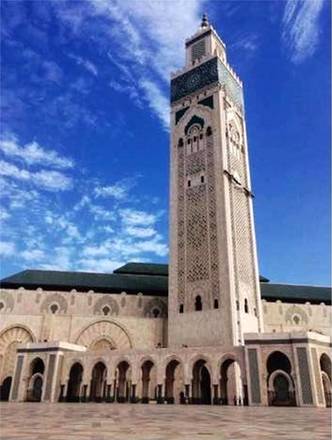
Unsure whether to take the dog, I did as much research as possible. Our Labrador has a European pet passport, and has been traveling to Europe for the past six years. I wanted to make sure there wouldn’t be any hitch bringing her back from Morocco where rabies is a high risk, into Spain. It went something like this. Our UK vet said ask the Spanish Embassy, the Embassy in London referred me to DEFRA, who only dealt with the UK, and said contact the Spanish Embassy in Spain. They put me in contact with the Spanish boarder vet. He said she needed a new rabies assay, as the rules had changed, it now had to be after 21 days of the vaccination, not before as in her case. The day before we crossed to Morocco I checked with customs, who said there should be a sticker from the vaccine in the passport, and to show it to the police who said it was fine! On the homeward crossing no one asked about the dog, or looked at her passport.The decision to take her worked well. Due to up-bringing, Moroccan people do not tend to have much contact with pet dogs. There are guard dogs on a chain, working dogs or semi-wild dogs that scrounge for food, and are wary of humans. The sight of a dog walking quietly to heel on a lead caused surprise, interest and fear. Some wanted to know all about her, others stood back as we approached. We took her everywhere with us, into souks, medinas and cafes, and on the beach. She had the added advantage of staving off unwanted guides and hustlers, who thought twice about approaching us with a large dog, out walking or in the camper. Dry dog food is not widely sold, when hers ran out Daisy2 did well on an improvised diet of boiled chicken and rice.
|
Winter warmth and sunshine was what we had come for, and the first month of our trip we spent slowly exploring south down the west coast. If possible we took the coast road, which gave some memorable and spectacular drives. There are interesting towns en route with souks that sell all manor of local products, and medinas that make up the intricate living quarters. We got used to finding we had acquired an unofficial guide, and after the first one in Tangier who wouldn’t take no for an answer, others showed us places we may not have found ourselves, and helped with haggling. Quite how much they “helped” I am not sure, we were happy as long as the item came within our pre determined budget, to buy Jalabads (robes) and silver. In Sidi Ifni we discovered hole in the wall shops, a serving hatch on a house that sell a few groceries and bread, south of Gueillmin there are no supermarkets. Equally novel fruit, salad, and veg bought in the market is collected together in a bowl, and sold by weight.
An unknown conundrum for us was the disputed situation in the Southern Sahara south of Tan Tan. We travelled about 300 miles further south to Bourjdour, and apart from a slight increase in police check points we found no trouble, and had an enjoyable trip looking for ship wrecks along this sparsely populated coast that meets the black (stony) desert. |
Tracing our route back to Gueilmin, we headed east towards the desert towns of M’Hamid and Mezouga along the valley between the Riff Mountains. These towns are pretty remote, even so we had a puncture repaired on the camper, and took the opportunity to take a 4x4 out into the desert to Erg Chegaga, and ride dromedaries, the ships of the desert. The Todra Gorge and Draa Valley gave more panoramic drives, with local exploration by walking and cycling round magical oasis shared with farmers and their donkeys who are still the main source of transport. The N9 along the Draa Valley is called the Kasbah route, and there are many fascinating examples. A few are maintained and lived in, most are in various stages of dilapidation. The clever ecological part is that these buildings melt back into the landscape from whence they were built years ago.
In Marrakech there is overnight guardian parking within walking distance of the old souk. It appears that touts, beggars and animals are kept to acceptable levels to encourage tourism, and the same has happened in Essouria. The real deal is in abundance in Tangier Tiznit and other local towns.
Two and a half months flew past. Would we go again? Yes definitely. Morocco is a fascinating and diverse country, with it’s routes in a third world culture that are becoming increasingly westernised. Someone said to us to allow at least a week to get used to the way of life and driving. This is sage advice, and we were very glad we hadn’t turned back after a close shave with a lorry in the first few days, we would have missed so much!.
In Marrakech there is overnight guardian parking within walking distance of the old souk. It appears that touts, beggars and animals are kept to acceptable levels to encourage tourism, and the same has happened in Essouria. The real deal is in abundance in Tangier Tiznit and other local towns.
Two and a half months flew past. Would we go again? Yes definitely. Morocco is a fascinating and diverse country, with it’s routes in a third world culture that are becoming increasingly westernised. Someone said to us to allow at least a week to get used to the way of life and driving. This is sage advice, and we were very glad we hadn’t turned back after a close shave with a lorry in the first few days, we would have missed so much!.







